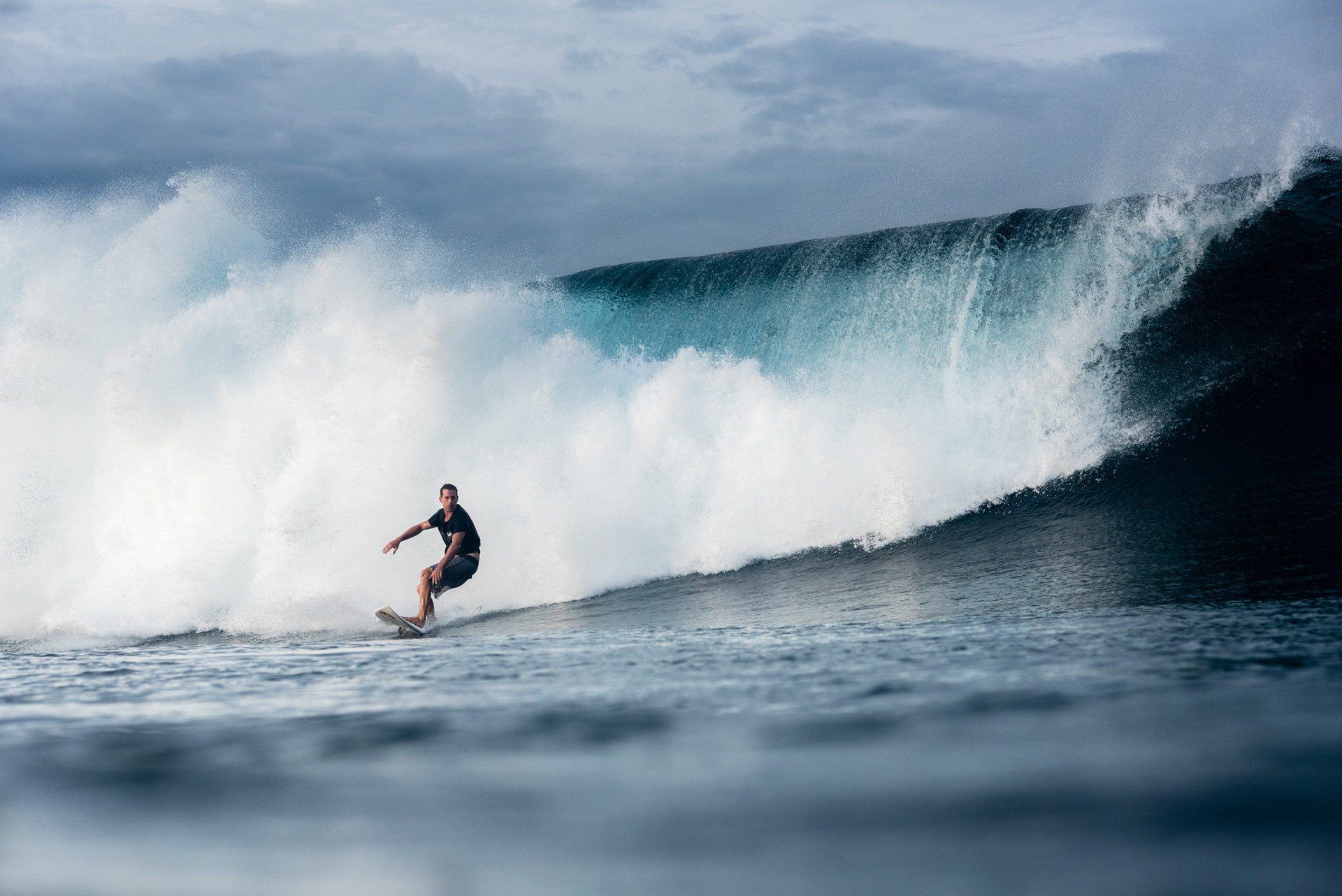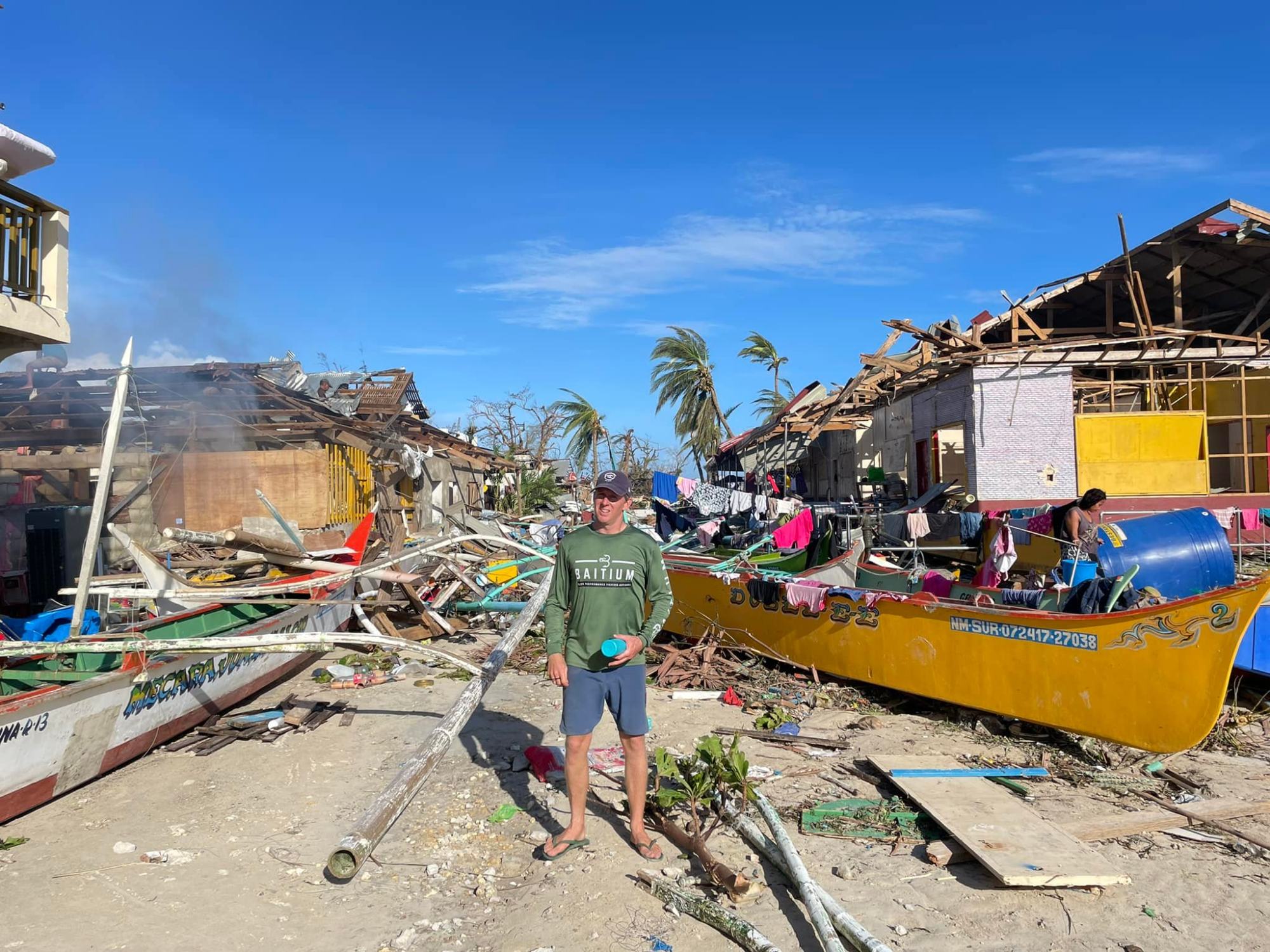
- Australian James O’Donnell tells Thomas Bird about his love for Asia, and combining his entrepreneurial talents with his passion for surfing and the outdoors
I was born in 1980 in Ipswich, in the western suburbs of Brisbane. Back in the 1980s, Brisbane felt like more of a country town than, say, big cities like Sydney or Melbourne.
I have fond memories of my dad pulling me out of school every second Friday and taking me to Fraser Island or somewhere along the Sunshine Coast, camping or fishing with my cousins. I thought it was awesome. We were always on some sort of adventure.
To this day, I’m not much of a city boy, even though my business has taken me to some huge Chinese cities. I think being out in nature as a child informed a lot of who I am today.
Tasting Chinese

I was never a great student but I did enjoy learning languages. Typically in Australia, you learned Indonesian or French. But when I was about 14, Australia was reorienting towards Asia and our school was the first in the state to offer Chinese language classes.
I signed up straight away. Some people were like, “What do you want to learn that language for?” But it clicked with me and I continued to study Chinese along with business management when I enrolled in the University of Queensland.
‘We kept it natural’: Indonesia’s Sumbawa is an unspoilt paradise, for now
Off piste
After graduating, I headed to Canada and worked for a season as a snowboard instructor. My plan was to save money to go to China and improve my Chinese. But then I met someone who had taught in Taiwan who told me, “It’s an amazing island, you should go.”
I found a job teaching English in rural Chiayi and booked a flight. I loved it; it’s a hardworking place, heavily industrialised in parts but it also has a cool, tropical island vibe.
When Sars broke out in 2003, work was cancelled, so that’s when I went to the beach and found that Taiwan also has an amazing surf culture.
I did another season snowboarding in North America and then I went back to Taiwan to teach in Pingtung, just south of Kaohsiung. During the week I’d be in the city but on weekends I would spend my time exploring the coast, camping next to some great surf spots.

China bound
I went back to Australia and found a job at a company based in Brisbane. They were sourcing products from mainland China but there were problems with the supply chain, like fake suppliers stealing money or faulty product turning up.
I realised, if we’d had an office in China, we could be inspecting these things. So, in 2008, I moved to Guangzhou to set up my own business, AustAsiaCo, essentially doing quality control for clients around the world.
This developed into Oz Designs China, which I founded with Gordon Tse in 2009. We now employ about a hundred people manufacturing men’s and women’s surf wear and streetwear fashion, as well as digital sublimated team wear or sportswear.

Surfing PRC
Initially I lived on Beijing Road, the chaotic commercial hub of Guangzhou, which is about as far from nature as you can get. With friends, we’d go off to Hainan Island whenever we could. It was quite underdeveloped and you could find a 50-yuan hotel (US$7) near Riyue Bay, a famous surf spot.
In Hong Kong, I ran into a surfing buddy from Taiwan and he took me surfing off Hong Kong Island. I hadn’t expected to find a wave there but it was closer than Hainan, roughly five hours from my door in Guangzhou, so I started to go regularly.

Secret spot
I first went to Siargao, an island off the northeast coast of Mindanao, in the Philippines, in 2009. There was one flight a week to the island and only about five resorts.
The road in General Luna, the main town, was just a water buffalo track. Electricity was limited, the internet was basically an antenna up a coconut tree and there were no ATMs anywhere on the island.
Many locals lost everything. The first few days were about survivalJames O’Donnell on the aftermath of super typhoon Rai (Odette) in Siargao, Philippines
But due to the Philippine Trench, a world-class swell is created and that’s why the surf is so amazing, especially around Cloud 9, where the international surfing cup is held each year.
We found out land was cheap, so a friend, Andrew Russo, and I decided to set up a small getaway, somewhere we could come with friends to surf that wasn’t too far from our businesses in China.
We started building Greenhouse step by step, figuring it out as we went along. We now have five beachfront villas, as well as a restaurant and a shop, which is pretty amazing considering how we started.

Heaven beside you
I met my then wife-to-be, Marja, here in 2015. She had returned from working in Singapore and actually stayed at the Greenhouse. I fell in love and said, “Come to China with me”, and she said, “no way”, so I said, “OK, let’s move to Siargao full time.”
Before 2016, my life had basically been two months in Guangzhou, two weeks in Siargao. Then it switched. Over the next few years tourism exploded on the island.
‘Do you eat dog?’: actress on racism in the UK, being an LGBTQ role model
Siargao the movie (2017) was a big hit, the World Surf League attracted a lot of people, plus Boracay was closed down for environmental reasons, so many people were looking for the next hot destination.
Our business grew amid this rapid development. It was so fast, waste like plastic bottles became a real issue. There was no proper waste-treatment facility on the island at the time, so we established SEA Movement, working to educate the local community to protect the marine resources that attracted people here.
Like any national park, there’s a thick book on environmental standards for the island. But people weren’t really aware of them. So we just pushed to enforce the rules that were already in place. One of the good things that has come from this is the ban on giving out plastic bags or straws at resorts.
Pandemic pause
We have a surf shop here, so we were really ramping up production as tourism was booming. Then in early 2020 everything came to a halt. It was a bit of a shock.
You could leave the island but nobody could come in due to Covid-19 lockdown rules. As my wife was pregnant with our son, Makalo, I decided to stay.
Our lives had become very busy so we knew that this might be the only time we’d see the island go back to how it had been a decade earlier. We decided to enjoy the process.
The locals went back to fishing and so did I. It was bliss, like being a kid in Queensland again.

Heavy weather
By the end of 2021, domestic tourism was returning to pre-pandemic levels. Business owners had spent a lot of money renovating their places in anticipation of tourism’s return. We had a lot of bookings leading up to Christmas.
Then, on December 16, super typhoon Rai (Odette) hit the island. We lost all our roofs. The water was about 2.5 metres (8 ft) high and it came straight through the kitchens, ripping out all the cooking equipment. It was like nothing I’ve experienced.
Many locals lost everything. The first few days were about survival, just getting people water and food. Then it was about shelter. The sound of hammers tapping was all you heard in the weeks after the typhoon.
It took me seven months to rebuild Greenhouse, more or less from scratch. But 18 months on and the island is booming again.

Looking ahead
Climate change is very real – the world needs to wake up and take action. Unfortunately people don’t seem to do anything until it hits close to home. The Philippines is very susceptible but tourism is really important for people’s livelihoods.
If doing business in Asia has taught me anything, it’s that you need to be resilient. Being hands-on and being able to adapt quickly is the only way you’ll survive.
A cruise on wheels: across British Columbia, and back, by train
I’m now preparing to go back to my factory in China and I’m aware China has changed a lot in the interim three years. You know, I could end up working 24/7 with all I have going on, so it’s important to have something else in my life.
In that sense, surfing is not just exercise, it keeps me sane.

